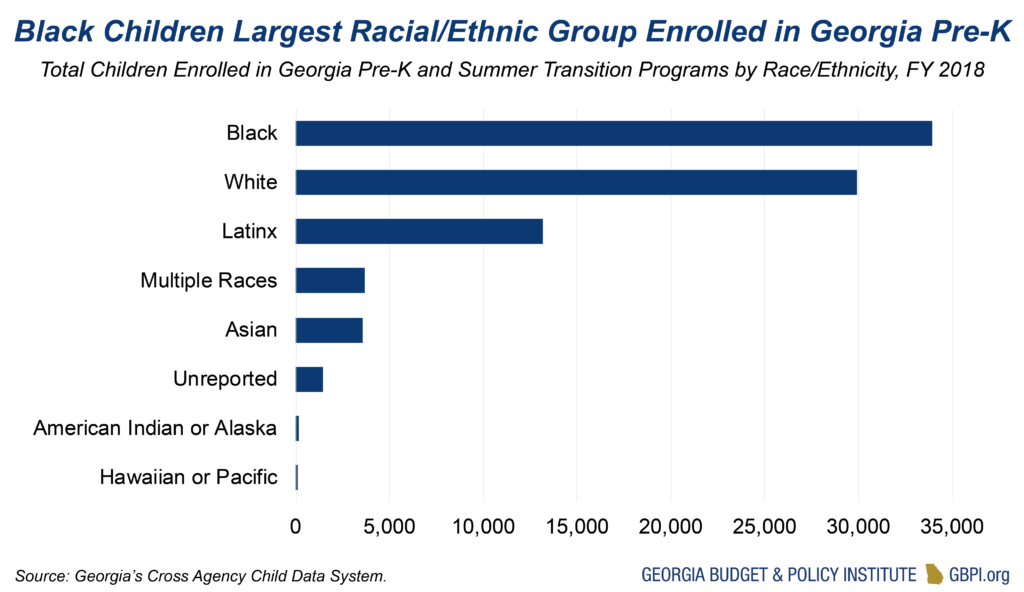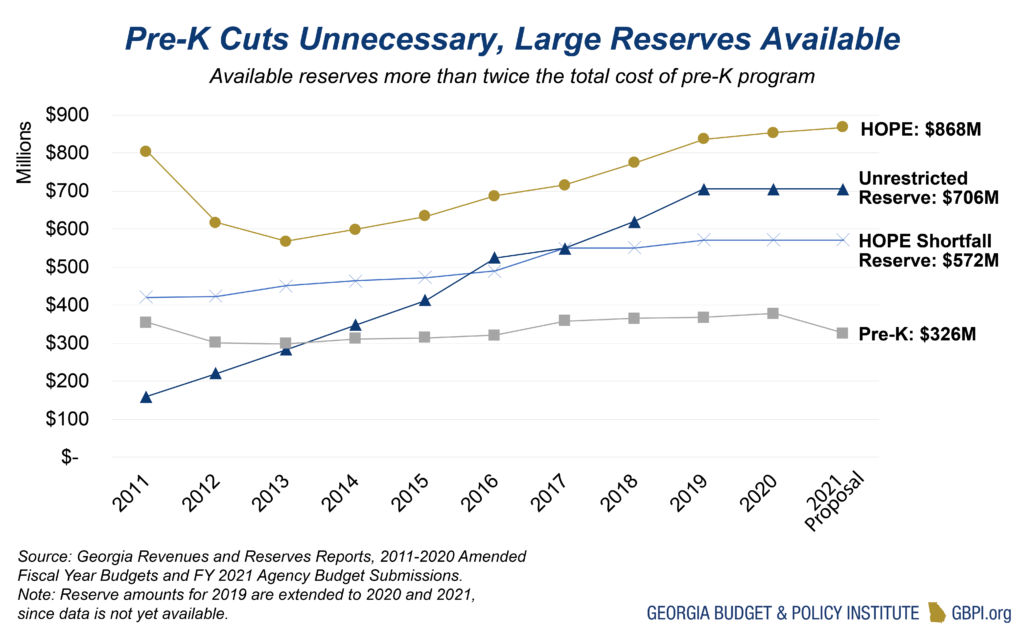Key Takeaways
- Agency budget proposals for lottery-funded programs included no cuts to HOPE and $53 million in cuts to pre-K. This would mean the elimination of 4,000 slots for Pre-K students, 13 fewer instructional days for children and six fewer teacher planning days.
- The Senate Appropriations Committee voted to restore the 4,000 pre-K slots that the administration had planned to cut for Fiscal Year 2021. Lawmakers should maintain pre-K, as lottery revenues are expected to be relatively stable, and Georgia’s large lottery reserves can fill in the gap if ticket sales fall more than expected.
State leaders have called for across-the-board budget cuts to education, health care and every other program and service Georgians need. To avert cuts to services funded through the state general funds, like K-12 education, lawmakers should raise revenues. Some programs, such as HOPE and pre-K, are funded by the lottery. Lottery revenues are not likely to fall much, yet state leaders still proposed deep and damaging cuts to pre-K.
Agency proposals included cuts to pre-K that would eliminate 4,000 slots. The Senate Appropriations Committee voted to restore these cuts and keep pre-K whole. However, this restoration of cuts will not be finalized until the full Senate and House vote to approve the same version and the governor signs the budget into law. Lawmakers and the governor should maintain pre-K funding to support Georgia’s youngest learners and their families.
Eliminating Classrooms Would Fall Most Heavily on Black Children and Families
Pre-K cuts would hurt young children’s access to early education, parents who need to return to work, pre-K teachers who are already underpaid and private and non-profit pre-K providers struggling to re-open. Proposed cuts eliminated 4,000 pre-K slots, 60 summer transition classrooms and funding for before and after-school care for children from low-income families receiving state child care subsidies. Nearly 34,000 Black children enroll in Georgia pre-K and summer programs, 30,000 white children and 13,000 Latinx children. Reducing the school year by 13 days also cuts valuable instructional time and pay for pre-K teachers, undoing the previous pay raise and inflicting an added pay cut.
Pre-K Funding Not Facing a Shortfall
However, different dynamics in lottery funds make pre-K cuts unnecessary. Historically, lottery ticket sales remain relatively stable during economic downturns. In 2011, lottery ticket sales decreased by 2 percent, the largest decrease since 2001. Currently, the lottery projects a slight decrease for the budget year ending June 2020 due to a sales dip in March, but reports that sales grew again in April. Pre-K costs are predictable through the year, and funding changes infrequently from appropriations bills to amended budgets.
Lawmakers Created Fallback Plan For Pre-K To Avoid Pre-Emptive Cuts
Lawmakers’ past policy decisions put pre-K in a strong position to weather potential temporary decreases in ticket sales. Georgia has saved more than $1.2 billion in unspent lottery reserves that must be used for education. Reserves dedicated to HOPE shortfalls are legally mandated at 50 percent of prior-year lottery proceeds and stands at $572 million. Right now, lawmakers can use $706 million in excess reserves for pre-K, more than twice the total cost of the pre-K program.
In addition, several policy changes put Georgia’s lottery-funded programs in a much stronger position than the last recession. The current HOPE shortfall requirement is five times higher than the original requirement. Today, most HOPE spending does not increase automatically with tuition rates; it is set every year by the state. And the university system announced no tuition increases for 2020-2021, eliminating any pressure on lottery funds due to tuition increases.










